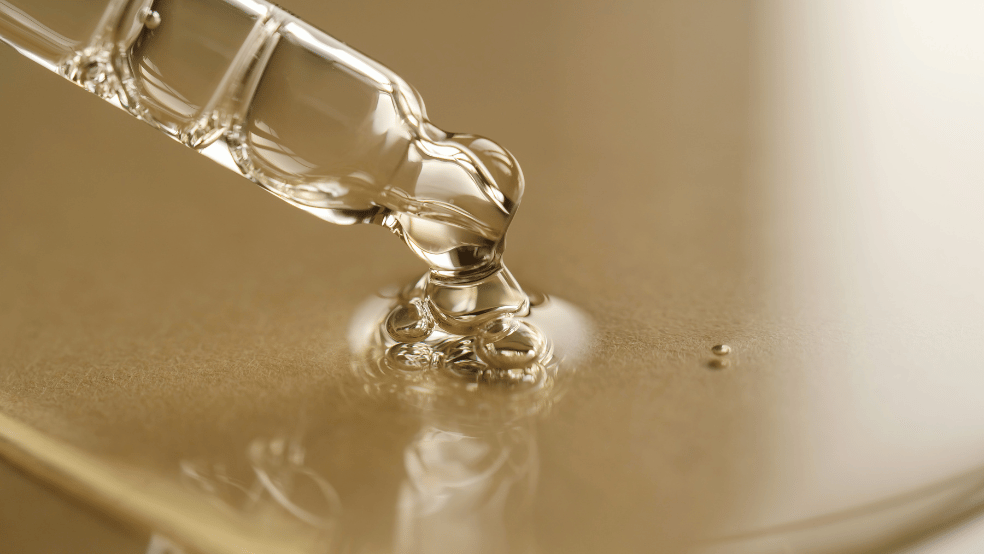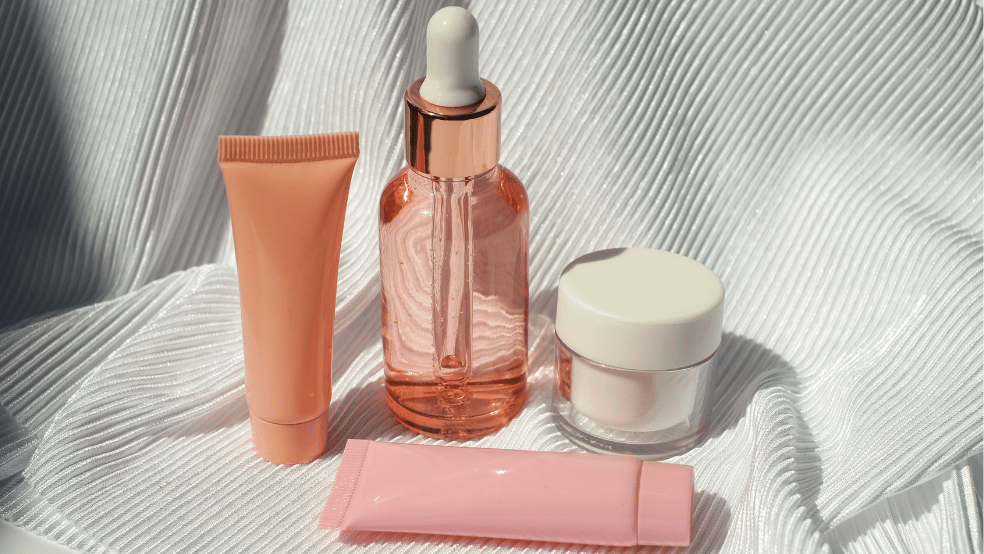When it comes to skincare, Niacinamide (Vitamin B3) and Vitamin C (Ascorbic Acid) are two of the most well-researched and widely used active ingredients. Each offers unique benefits, addressing different skin concerns while also complementing each other when used correctly. Understanding their differences and how to incorporate them into a skincare routine can significantly improve skin health and appearance.
Niacinamide vs. Vitamin C: Serum Comparison
The table below provides a side-by-side comparison of these two skincare essentials, highlighting their benefits, best use cases, compatibility, and recommended application. Whether you are looking to control oil, brighten your skin, reduce redness, or combat signs of aging, this guide will help you choose the right ingredient for your skincare needs.
Now, let’s break it down:
| Feature | Niacinamide (Vitamin B3) | Vitamin C (Ascorbic Acid) |
|---|---|---|
| Primary Benefits | Oil control, strengthens skin barrier, reduces redness, minimizes pores | Brightens skin, fades dark spots, boosts collagen, antioxidant protection |
| Best For | Oily, acne-prone, sensitive, redness-prone skin | Dull, uneven, aging, sun-damaged skin |
| Skin Type Compatibility | All skin types, especially oily and sensitive | All skin types, but may irritate sensitive skin |
| Oil Control | Yes | No |
| Reduces Redness | Yes | Minimal |
| Fades Hyperpigmentation | Yes (mild effect) | Yes (strong effect) |
| Boosts Collagen Production | No | Yes |
| Antioxidant Protection | Minimal | High |
| Reduces Fine Lines & Wrinkles | Minimal | Yes |
| Minimizes Pore Appearance | Yes | No |
| Best Time to Use | Morning and Night | Morning (preferred) |
| Sun Sensitivity | No | Yes (must use SPF) |
| Common Formulations | Serums, moisturizers, toners | Serums, creams, powders |
| Layering with Other Ingredients | Compatible with most ingredients (Vitamin C, Retinol, AHAs/BHAs, Peptides) | Compatible with Niacinamide, SPF; avoid layering with AHAs/BHAs immediately |

Niacinamide (Vitamin B3) – The Skin Barrier Protector
Niacinamide is a water-soluble form of Vitamin B3 known for its anti-inflammatory, oil-regulating, and barrier-strengthening properties. It is widely recognized for its ability to calm the skin, reduce redness, and minimize the appearance of pores while also improving overall skin texture.
Benefits of Niacinamide:
- Regulates Sebum Production – Helps control excess oil, making it particularly beneficial for oily and acne-prone skin.
- Reduces Redness and Irritation – Calms inflammation, making it ideal for sensitive or rosacea-prone skin.
- Minimizes Pore Appearance – While pores cannot physically shrink, niacinamide reduces oil buildup, making them appear smaller.
- Fades Hyperpigmentation – Assists in reducing post-inflammatory hyperpigmentation (PIH) and dark spots.
- Strengthens the Skin Barrier – Enhances the skin’s moisture retention, preventing dehydration and irritation.
- Supports Acne Treatment – Helps regulate oil and reduces inflammation, making it beneficial for breakout-prone individuals.
Best for: Oily, combination, sensitive, acne-prone, or redness-prone skin types.
When to Use It:
- Can be applied both morning and night, as it is non-irritating and pairs well with most other skincare ingredients.
- Found in serums, toners, and moisturizers.
Vitamin C (Ascorbic Acid) – The Antioxidant Powerhouse
Vitamin C is a potent antioxidant that plays a crucial role in brightening the complexion, reducing hyperpigmentation, and promoting collagen synthesis. It is highly effective in neutralizing free radical damage caused by UV exposure, pollution, and environmental stressors, making it an essential ingredient for anti-aging and skin protection.
Benefits of Vitamin C:
- Brightens Skin Tone – Effectively enhances radiance and luminosity, improving overall skin texture.
- Reduces Hyperpigmentation – Fades dark spots, sun damage, and acne scars, promoting an even complexion.
- Boosts Collagen Production – Stimulates collagen synthesis, helping maintain skin’s firmness and elasticity.
- Provides Antioxidant Protection – Shields against environmental stressors such as UV rays and pollution.
- Reduces Fine Lines and Wrinkles – Contributes to a more youthful appearance by preventing premature aging.
Best for: Individuals with dull, uneven, or aging skin, as well as those looking to protect their skin from environmental damage.
When to Use It:
- Best applied in the morning to maximize its antioxidant and photoprotective effects.
- Should always be followed by sunscreen (SPF 30+), as Vitamin C increases skin sensitivity to sunlight.

Difference Between Niacinamide and Vitamin C
Niacinamide and Vitamin C are both powerful skincare ingredients, but they serve different purposes. Niacinamide (Vitamin B3) is best known for its oil-regulating, anti-inflammatory, and skin barrier-strengthening properties, making it ideal for oily, acne-prone, and sensitive skin. It helps reduce redness, minimize the appearance of pores, and improve overall skin texture. While it does offer mild brightening effects, its impact on hyperpigmentation is gradual rather than immediate.
Vitamin C (Ascorbic Acid), on the other hand, is a potent antioxidant that helps brighten the skin, fade hyperpigmentation, and stimulate collagen production. It is particularly beneficial for those looking to reduce dark spots, protect against environmental damage, and improve signs of aging. Unlike Niacinamide, Vitamin C works more aggressively to boost radiance and even out skin tone, but it can sometimes cause irritation, especially for sensitive or acne-prone skin.
While Niacinamide is gentle and suitable for all skin types, Vitamin C can be unstable in certain formulations and may increase skin sensitivity to the sun, requiring SPF protection. However, both ingredients can be used together to maximize their benefits. A common approach is to apply Vitamin C first in the morning, followed by Niacinamide, and finish with sunscreen. If your skin is sensitive, using Vitamin C in the morning and Niacinamide at night can help prevent irritation. Ultimately, choosing between them depends on your skin type and concerns, but using both strategically can lead to balanced, brighter, and healthier skin.
Is Vitamin C or Niacinamide Better for Hyperpigmentation?
When it comes to treating hyperpigmentation, Vitamin C is generally more effective than Niacinamide.
Vitamin C (Ascorbic Acid) is a potent antioxidant that directly inhibits melanin production, helping to fade dark spots, acne scars, and sun damage more quickly. It works by blocking the enzyme tyrosinase, which is responsible for producing excess pigmentation. This makes Vitamin C particularly beneficial for individuals with post-inflammatory hyperpigmentation (PIH), sun spots, or uneven skin tone. However, Vitamin C can be unstable in certain formulations and may cause irritation, especially for those with sensitive or acne-prone skin.
Niacinamide (Vitamin B3) also helps reduce hyperpigmentation, but it works more gradually by preventing melanin from transferring to the skin’s surface rather than directly blocking its production. While it is gentler and better tolerated than Vitamin C, it is not as fast-acting in fading dark spots. It is, however, a great option for sensitive skin or for those looking to maintain an even complexion over time.
For best results, combining Vitamin C in the morning (for antioxidant protection and brightening) with Niacinamide at night (for skin barrier repair and gradual pigmentation reduction) can create a well-rounded approach to tackling hyperpigmentation. If you have sensitive skin, you may want to start with Niacinamide and introduce Vitamin C gradually to avoid irritation.
Can Niacinamide and Vitamin C Be Used Together?
Yes, Niacinamide and Vitamin C can be used together effectively. While there was once a belief that these ingredients neutralize each other, modern research confirms that they complement each other when formulated correctly.
How to Layer Them for Maximum Benefits:
Morning Routine:
- Apply Vitamin C serum first and allow it to fully absorb.
- Follow with Niacinamide serum or moisturizer.
- Finish with sunscreen to protect the skin from UV damage.
Evening Routine:
- Use Niacinamide in your nighttime routine for additional skin barrier support and oil control.
- Vitamin C can also be applied at night, but this depends on individual skin tolerance.
Tip for Sensitive Skin: If you experience irritation, consider using Vitamin C in the morning and Niacinamide at night to minimize sensitivity.
Should I Use Vitamin C or Niacinamide?
Choose Niacinamide if:
✔ You have oily, acne-prone, or sensitive skin.
✔ You struggle with redness, irritation, or enlarged pores.
✔ You need gentle but effective skin barrier support.
Choose Vitamin C if:
✔ You want a brighter, more radiant complexion.
✔ You have hyperpigmentation, dark spots, or sun damage.
✔ You are looking for anti-aging benefits and collagen stimulation.
💡 Best Practice: If your skin tolerates both, incorporating them into your routine together or at different times of the day can provide enhanced results, leading to a balanced, bright, and healthy complexion.

Final Thoughts: A Powerful Skincare Duo
Rather than being competitors, Niacinamide and Vitamin C work synergistically to promote clearer, brighter, and healthier skin. While Niacinamide helps regulate oil production, calm inflammation, and strengthen the skin barrier, Vitamin C protects, brightens, and fights signs of aging.
For optimal results, follow a structured skincare routine, ensuring each ingredient is used at the right time and in the correct order. Whether used separately or together, both Niacinamide and Vitamin C can contribute to visibly healthier, more radiant skin.
Skincare is personal—understanding how these ingredients work can help tailor a regimen that suits your skin’s unique needs.
